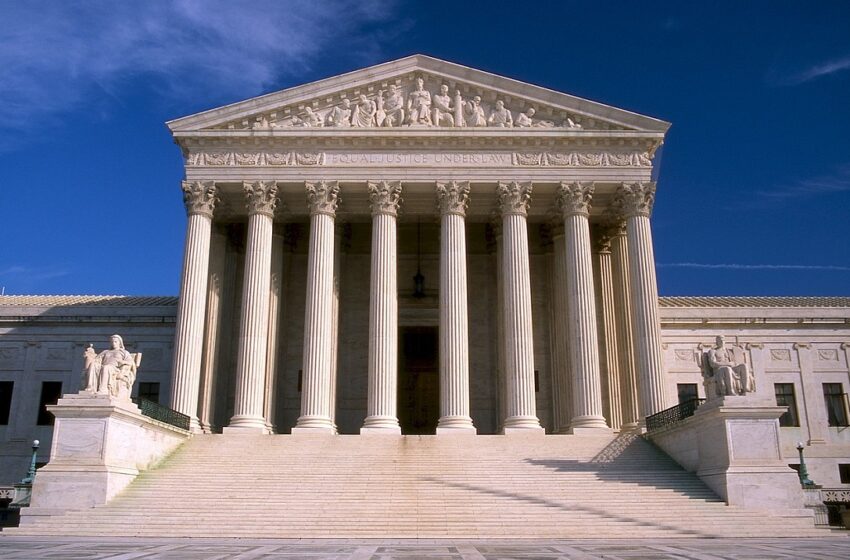Indian American leaders stand divided on affirmative action


Democrats denounce the apex court verdict as “terrible,” Republicans say it will restore “restore colorblind meritocracy”
Top Indian American politicians seem as divided on ideological lines as the judges themselves on the Supreme Court ruling gutting affirmative action by barring race-conscious admissions to top American colleges.
In a 6-3 ruling, the apex court found that Harvard and the University of North Carolina discriminated against white and Asian American applicants by using race-conscious admissions policies.
Students for Fair Admissions, the group that challenged the Harvard and UNC policies, includes some Indians. It lauded the decision, saying that it “marks the beginning of the restoration of the colorblind legal covenant that binds together our multi-racial, multi-ethnic nation.”
READ: Supreme Court bans race based college admissions (June 29, 2023)
But the Indian American politicians were divided on ideological lines with Republicans hailing the decision and Democrats decrying it as “terrible”
On the Democratic side, Vice President Kamala Harris was quick to denounce the Supreme Court decision “as a step backward for our nation.”
“It rolls back long-established precedent and will make it more difficult for students from underrepresented backgrounds to have access to opportunities that will help them fulfill their full potential,” Harris stated.
“It is well established that all students benefit when classrooms and campuses reflect the incredible diversity of our Nation. Colleges and universities provide opportunities for students to interact with Americans from all walks of life and learn from one another,” she stated. “By making our schools less diverse, this ruling will harm the educational experience for all students.”
“Our Nation’s colleges and universities educate and train the next generation of American leaders. Students who sit in classrooms today will be the leaders of our government, military, private sector, and academic institutions tomorrow,” she stated. “Today’s decision will impact our country for decades to come.”
“In the wake of this decision,” Harris stated, “we must work with ever more urgency to make sure that all of our young people have an opportunity to thrive.”
Pramila Jayapal, who leads the Congressional progressive caucus called the verdict a “terrible ruling.”
“Ensuring that people from all corners of this country are represented at colleges and & universities is part of what makes America so unique, and this decision will hurt communities of color and result in a loss in diversity of thought in education,” she tweeted.
Groups hurt by the apex court decision included low-income students and those facing systemic barriers to educational opportunities, Jayapal stated. “Affirmative action supports their paths to a quality education and economic mobility, but now, college access will be more limited to the wealthy few.”
Ro Khanna, who represents Silicone Valley in the House, said that the Supreme Court was doing a “terrible disservice” to the future leaders of the country in a multi-ethnic and multiracial democracy.”
The decision would not just harm Black and Latino students but also White and Asian-American students who would be deprived of an opportunity to understand their own country, he said.
Shri Thanedar, the first non-Black representative in over 70 years from the newly redrawn 13th District of Michigan, said by sticking down affirmative action, the Supreme Court had placed “a roadblock on creating equal playing fields for all.”
“Let’s not let the fight stop here. As a nation, we must come together to ensure that fairness, justice, and equal access remain at the forefront of our policies,” he tweeted.
However, Republican presidential aspirant Vivek Ramaswamy, who has promised that one of his first acts as president would be to end affirmative action by executive order, celebrated the ruling as a victory for fairness.
The multimillionaire entrepreneur who graduated from Harvard College called the Supreme Court’s ruling “a step in the right direction” which will “spawn the beginning of a new era of ‘shadow’ racial balancing, where universities & companies play complex games that deprioritize numerical academic metrics to still achieve the same goals.”
READ: Supreme Court guts affirmative action, effectively ending race-conscious admissions (June 29, 2023)
“Picking winners & losers based on the color of someone’s skin isn’t just racist, it’s psychological slavery,” he tweeted calling affirmative action “a badly failed experiment: time to put a nail in the coffin & restore colorblind meritocracy.”
Joining him in praising the court verdict was fellow Indian American Republican presidential aspirant Nikki Haley. “Picking winners and losers based on race is fundamentally wrong. This decision will help every student—no matter their background—have a better opportunity to achieve the American Dream.” she stated.

